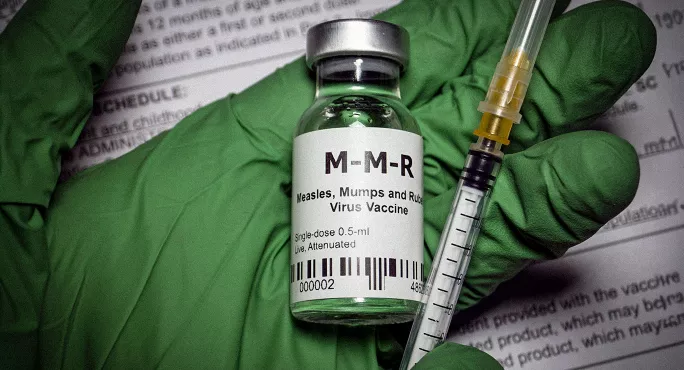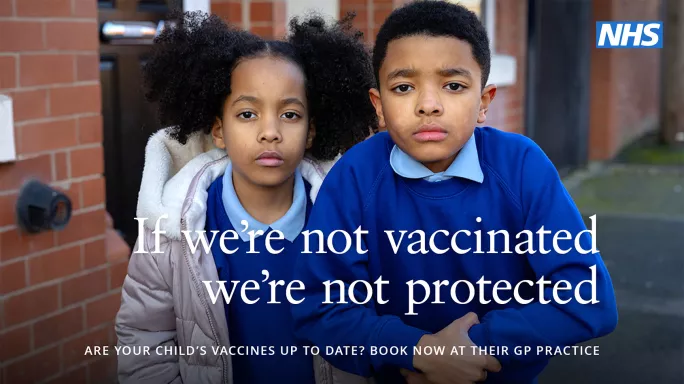Health officials are ramping up a campaign to promote pupil vaccinations in the hope of avoiding a potential surge in measles cases after schools reopen for the autumn term next week.
The six-week campaign aims to encourage parents to make sure that pupils are fully vaccinated against “easily preventable” diseases such as measles, whooping cough, meningitis, diphtheria and polio, and is being jointly run by the UK Health Security Agency (UKHSA), the Department of Health and Social Care (DHSC) and NHS England.
It comes amid concerns that uptake of the MMR (measles, mumps and rubella) vaccine is still too low in some areas of England, including London, the West Midlands and the North West.
Dr Vanessa Saliba, consultant epidemiologist at the UKHSA, said “unvaccinated children are at risk of serious illness or life-long complications” that are “so easily preventable” through the two MMR jabs.
Measles cases in schools
The fresh campaign follows a surge of measles cases in England towards the end of 2023 after an outbreak in Birmingham. This sparked an MMR vaccination catch-up campaign.
According to the UKHSA, in the past 12 months the NHS has administered 180,000 additional MMR doses, with more than 51,000 of these given to children aged 5 or under.
More than 13 per cent of previously unvaccinated children younger than 5 had their first dose of the jab during this period, while uptake of the second dose among Black, Caribbean or African children aged between 3 and 5 was up by 4.9 per cent.
There have been 2,387 lab-confirmed measles cases in England between the start of 2024 and 26 August, new UKHSA figures published on Thursday show.
This is already well above the 1,920 cases recorded in England in 2012, which was the last major measles outbreak.
Schools were involved in the earlier stages of the UKHSA campaign last year, when pupils were targeted within schools with the support of school-age immunisation services, the UKHSA said.
This campaign has included work targeted at areas with a high number of cases, such as the West Midlands, where school clinics were run and information webinars were held for headteachers.
Dr Saliba said it is “encouraging” that pupils who have missed vaccines are now being brought forward, but warned that “we are a long way from ensuring all are protected and safe”. She added that the vaccination programme is also important to prevent ”spreading the disease to others who may be more vulnerable”.
“Measles is highly infectious and is still circulating in many areas across the country,” she said.
“It only takes one case to get into a school or nursery where many children are unprotected for numbers to suddenly surge.”
There have been 122 confirmed cases in the most recent four weeks, though this is likely to underestimate the true figure due to lags in reporting the data, the UKHSA said.
London accounted for nearly three-quarters of the 122 cases.
For the latest education news and analysis delivered every weekday morning, sign up for the Tes Daily newsletter





